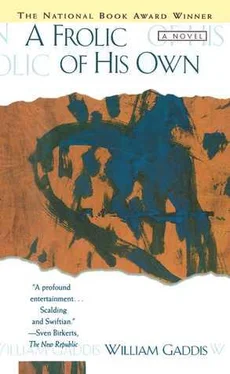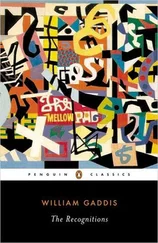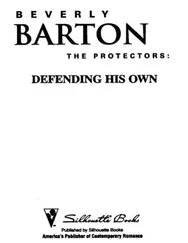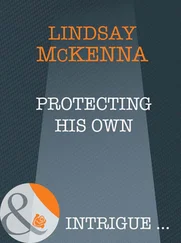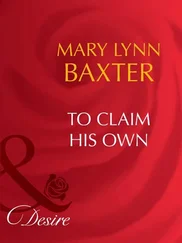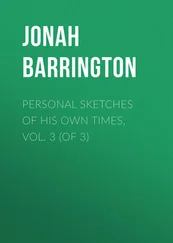MR.BASIE: I can't let you proceed with this leading the witness and confusing him right along these lines you're talking about, that's not what we're here for.
MR.MADHAR PAI: One of the things we're here for Harold is to make the distinction between amateur and professional. The witness himself has practically characterized his teaching career as a hobby even though he's paid, while he's now seeking substantial monetary damages for work he says was not motivated by mere hopes of financial gain, and since he has placed it in this Socratic context that is the line I am pursuing. Now Thrasymachus is telling us what sort of fellow he is, isn't he, in the way he expresses himself here?
A Yes.
Q In the way that we agreed characters are largely defined by dialogue, the way they express ideas, and it's this expression that's protected isn't it? Even if the ideas themselves are not?
A I said the idea expressed is the idea executed, when it's transformed into a play it's bound to the execution.
Q I see. And so, in short, you felt quite free to simply incorporate whole passages from Plato without attribution into the play you are representing as your own in this action?
A That I what?
Q It's a very simple question and I think you can answer it. Read it back please.
(Question is read.)
A I just wouldn't say incorporate.
Q It's a perfectly good word isn't it? Shall we read it again?
A No, but I…
Q Would you prefer took? lifted? purloined?
MR.BASIE: No, I have to break in here.
MR.MADHAR PAI: Please do not interrupt the witness.
MR.BASIE: I have an objection. MR.MADHAR PAI: Do you have an objection?
MR.BASIE: The witness is being led.
MR.MADHAR PAI: No one is leading anyone. We're simply searching for some suitable wording.
MR.BASIE: Didn't he use the word paraphrase earlier?
Q In short, you have used and paraphrased whole passages from Plato in your play Once at Antietam?
A Yes, that's…
Q In other words we are talking about very substantial similarities are we not?
A Yes. You see I…
Q In other words, these are not the sort of similarities that you agreed earlier can occur without copying, that may be plain coincidence so to speak, when the idea being expressed is common property as it were?
A Well not when the, I mean what I think I said was up to a point when what's being said is, when the idea and the expression are bound up together and the…
Q Let me get back to this essentially simple question. You see no harm in deliberately borrowing, to put a charitable face on it, in deliberately borrowing entire passages from the work of Plato and inserting them, with slight alterations, in work which you represent as your own. Is that correct?
A Yes and if you'll just let me explain, I…
Q Please take your time. We're in no hurry here.
A Because in the ñrst place I obviously expected people to recognize these passages, these pieces of Socratic dialogue, any civilized person would recognize them from the Republic. It's all simply, it was all simply meant as a kind of homage, that's obvious isn't it?
Q Please let me ask the questions. When you say any civilized person, are we back to that somewhat narrow, rather exclusive audience envisioned in connection with your play's title's slightly remote echo of Shakespeare?
A I answered that didn't I? That he played to both the stalls and the pits?
Q We are speaking now of Plato. Are you saying, then, that this very broad audience, which you have characterized as the pits, would be expected to recognize these random passages from his Republic?
A It doesn't matter, no. No not the speciñc passages but it doesn't matter, that's the…
Q Not the specific passages then, but the approach, the Socratic method as it's known. What Dale Carnegie called the 'Yes yes' response?
A Who?
Q Dale Carnegie, the author of How to Win Friends and Influence People.
A God! Yes, speaking of the pits but that's the point, it doesn't matter. They don't have to know it's the Republic, they may never have heard of Plato but they're carried along by it, by the dialogue, by the wit and the timeliness of it, and the timelessness of it. That's the greatness of Plato, finding a wider audience, that's the point. That's what I mean by homage.
Q You speak of the wit and timeliness of these dialogues, and you agreed earlier that the characters in a play are in fact largely defined by their dialogue, is that correct?
A Yes.
Q And in light of what might be called popularizing the work of Plato, would it be fair to infer that the character named Kane in your play is to a large degree based on Socrates?
A It's obvious, yes.
Q As portrayed by Plato? Or the historical figure, which?
A Well, well both, I mean Plato's version is about all that we really have, isn't it.
Q Which was simply there for the taking, like Caesar in Plutarch?
A Well not really no, because…
Q Because we agreed that the idea and its expression are different things, did we not?
A Yes but…
Q The difference between Shakespeare's King Lear and one by Joe Blow, is that correct?
A All right, yes, but…
Q And Joe Blow's version would differ substantially from yours? In the sense that we wouldn't see you writing 'Does it pain dreadfully? You poor darling…' Is that correct?
A Yes, but I…
Q And in the passage from Plato we just looked at, you wouldn't be found using a word like sillybillies, would you? A No but neither would Plato, that…
MR.BASIE: I object.
MR.MADHAR PAI: You are interrupting the witness.
MR.BASIE: That's the basis of my objection.
MR.MADHAR PAI: Are you objecting for form?
MR.BASIE: Yes.
MR.MADHAR PAI: For the record?
MR.BASIE: For the record.
MR.MADHAR PAI: All right. Let's move on. Read it back, please.
MR.BASIE: Now wait a minute.
MR.MADHAR PAI: Why should we wait a minute? Read it back.
MR.BASIE: I haven't finished. Why do you want it read back? He answered your question.
MR.MADHAR PAI: Then why are you interrupting?
MR.BASIE: Because I have an objection.
MR.MADHAR PAI: Would you like to state your objection?
MR.BASIE: You are badgering the witness by interrupting him before he can complete his answers.
MR.MADHAR PAI: I believe it was you who interrupted the witness.
MR.BASIE: I have a right to object when the witness is being baited by this pattern of repeated interruptions.
MR.MADHAR PAI: And I repeat, sir, the record will show it was you who interrupted the witness. Please read it back. (Record is read.)
Q We stated earlier, did we not, that anyone is free to take an idea and express it in whatever…
MR.BASIE: I haven't finished.
MR.MADHAR PAI: I simply cannot put up with this, Harold. I've tried to conduct this procedure as expeditiously as possible in deference to your wishes regarding the condition of the witness. I've been trying to speed things up by shutting off these irrelevancies and digressions but you seem bound on prolonging things with your ceaseless interruptions and it's most unprofessional.
MR.BASIE: I think the record will show that the entire course of the questioning has turned into a digression.
MR.MADHAR PAI: I don't know what you're talking about.
MR.BASIE: What I'm talking about is how we got off here into Plato, whether any passage in the play might have been borrowed from Plato is relevant to this infringement action where even just suppose Plato had a copyright, it would have expired before the birth of Jesus in any case.
MR.MADHAR PAI: I cannot resist the temptation to digress here for a moment myself, Mr. Basie, because it may be instructive and even of some later use to you in what you are pleased to call your career. I have never looked into the status of copyright agreements in fifth century Athens, which I agree would be quite remote from our present purposes. We are citing passages from the English translation of Plato's Republic by Benjamin Jowett copyrighted just a century ago by the Macmillan Company, renewed by Oxford University Press in nineteen twenty, and you may pursue it down to the present day as you see fit.
Читать дальше
